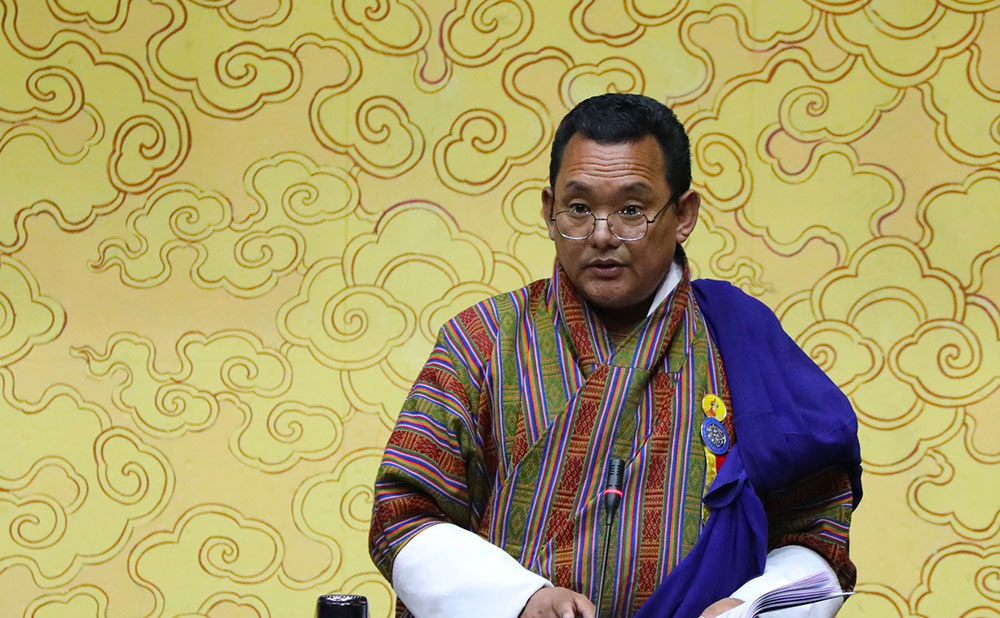Thukten Zangpo
Minister for Foreign Affairs and External Trade, Dr Tandi Dorji, highlighted the importance of standardising and certifying goods to enhance Bhutan’s export volumes.
His remarks came in response to concerns raised by Bardo-Trong MP Gyambo Tshering regarding Bhutan’s trade deficit, which had doubled from Nu 32.24 billion to Nu 61.92 billion last year.
Gyambo Tshering inquired about the government’s plans, programmes, and strategies aimed at promoting local industries, import substitution, and stimulating exports.
Minister emphasised that with standardised and certified goods for exports, Bhutan could engage in trade with 185 countries, highlighting the current focus on trade with India and Singapore.
He further noted that Bhutan has witnessed import growth since the inception of its first development plans in 1961. Last year, imports surged by approximately 32 percent, reaching Nu 118.79 billion compared to the previous year.
Notably, the import of information and technology equipment experienced an unusual increase, claiming the top spot on the import list. The import figure for such equipment rose from Nu 4.33 billion to Nu 11.9 billion in the past year. Bhutan also imported fuel worth Nu 11.38 billion, rice worth Nu 2.61 billion, and smartphones worth Nu 1.93 billion during the same period.
In terms of exports, Bhutan exported goods worth Nu 56.87 billion last year, including ferrosilicon valued at Nu 16.22 billion, and electricity worth Nu 22.48 billion.
Minister acknowledged that the pandemic posed significant challenges to Bhutan’s trade, particularly in the case of oranges, apples, cabbages, and ginger, which cannot be exported according to trade agreements.
The government has initiated the establishment of mini-dry ports in Pasakha, Phuentsholing, Samtse, Nganglam, Gelephu, and Samdrupjongkhar, to facilitate trade in the coming years.
To promote local industries, the government is developing industrial estates with a focus on the potential of ferrosilicon exports. However, due to inadequate electricity supply, licences could not be granted to all 20 industries.
In terms of trade facilitation, Bhutan signed a preferential trade agreement with Thailand and Bangladesh in 2022.
Minister also highlighted that various trade fairs are being organised globally, in collaboration with foreign embassies, missions, and consulate offices, to promote trade and expand market opportunities for Bhutan.
As Bhutan strives to address its trade deficit and bolster its economy, the government is actively exploring strategies to support local industries, improve export potential, and foster favorable trade relationships with international partners.


